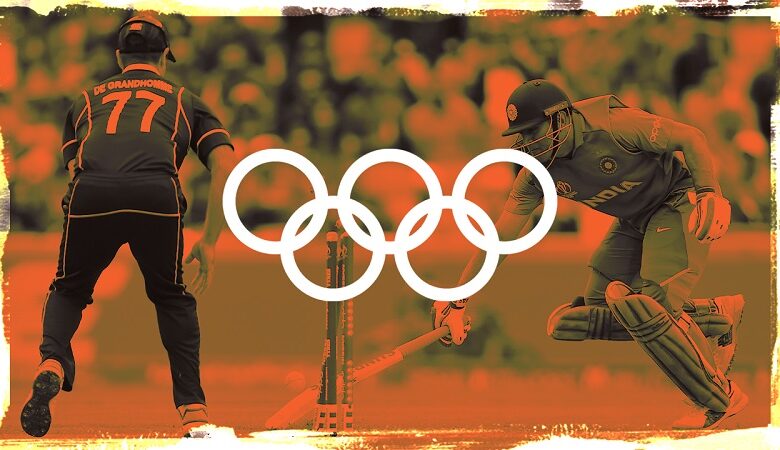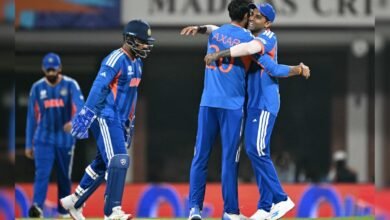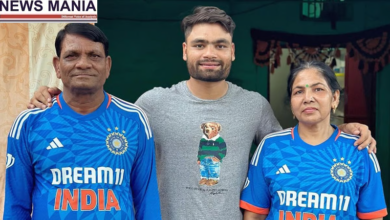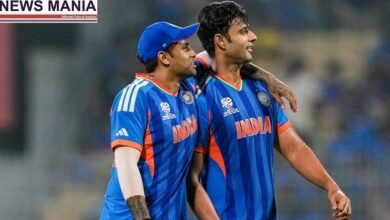Cricket’s Road to the Olympics: India’s Game Changer for the 2028 Los Angeles Olympics

India, the world’s most populous country, has long been synonymous with a single sport – cricket. However, its staggering population of 1.4 billion and surging economy have captured the attention of the International Olympic Committee (IOC). In a surprising turn of events, cricket, often deemed incompatible with the Olympic Games due to its complex rules and prolonged matches, could potentially become a part of the program for the 2028 Los Angeles Olympics. This seismic shift is attributed to the meteoric rise of Twenty20 cricket, or T20, a condensed format that has taken India by storm and is now poised to make its mark on the global Olympic stage.
For a sport that was once considered unsuitable for the Olympics due to its intricacies and extended play durations, cricket has experienced a transformation. Historically, India’s Olympic relevance has been limited, with 35 medals, including 10 gold, barely scratching the surface. Yet, the rise of the Indian Premier League (IPL) in the past 15 years has ushered in a new era. T20 cricket, with its three-hour matches and electrifying gameplay, has not only captured the hearts of fans but also emerged as one of the world’s most lucrative sports leagues. This success has not gone unnoticed by the IOC, which recognizes the potential of aligning with India’s economic growth.
The transition of cricket from being one of nine sports under consideration for inclusion in the L.A. 2028 Olympics to one of the top contenders is emblematic of its shifting status. A recent Guardian report suggesting that cricket’s inclusion is “very likely” has been corroborated by insiders, although the final decision remains pending. The alignment of interests and aspirations between India, the IOC, and Prime Minister Narendra Modi underscores the significance of this development.
Terrence Burns, Chairman of the T Burns Sports Group, emphasized the IOC’s interest in tapping into the Indian subcontinent’s untapped youth market. As the IOC seeks to expand its horizons, new markets are essential, especially as streaming technology disrupts traditional broadcasting methods. Having successfully hosted two Olympics in China in the last 15 years, the IOC recognizes India as the next coveted prize. With extensive corporate sponsorships and lucrative TV rights at stake, the Olympics have the potential to become a transformative force in India, aligning with the nation’s global ambitions.
The stage for cricket’s Olympic resurgence was set long ago. Cricket featured in the 1900 Paris Games with a single match between England and France. However, the sport’s traditional formats were phased out from the Games, and little was discussed about reinstating them until the advent of the IPL in 2008. Prior to the IPL, cricket was centered around national and state teams, and matches were often multiday affairs. The concept of T20 cricket leagues with city-based franchises and televised prime-time matches was initially met with skepticism in India’s cricketing circles. However, the IPL defied expectations, instantly captivating a broad audience.
Ronojoy Sen, a senior research fellow at the Institute of South Asian Studies, aptly described the IPL’s success: “It was a complete entertainment product that attracted not only traditional cricket fans but also nontraditional cricket fans.” This transformation reshaped the image of Indian cricket, shifting the focus to fast-paced nighttime matches illuminated by stadium lights. The atmosphere transformed into a family-friendly spectacle, appealing not only to cricket aficionados but also to a wider demographic.
Mihir Bose, author of “The Nine Waves: The Extraordinary Story of How India Took Over the Cricket World,” characterized the modern Indian cricket experience as a “reality TV show almost directed to Indian housewives.” This encapsulates the blend of cricket, entertainment, and cultural resonance that has propelled T20 cricket into a global phenomenon and has ignited the IOC’s interest.
As the IOC seeks to tap into India’s growing wealth and youth market, cricket’s potential inclusion in the 2028 Los Angeles Olympics stands as a testament to the sport’s evolving nature. With its roots in tradition and its embrace of innovation, cricket could bridge the gap between its historic significance and its contemporary appeal. The stars are indeed aligning, promising a new chapter in the Olympic movement, characterized by India’s economic prowess, cricket’s resurgence, and a shared vision of global engagement.
News Mania Desk / Agnibeena Ghosh 23rd August 2023






